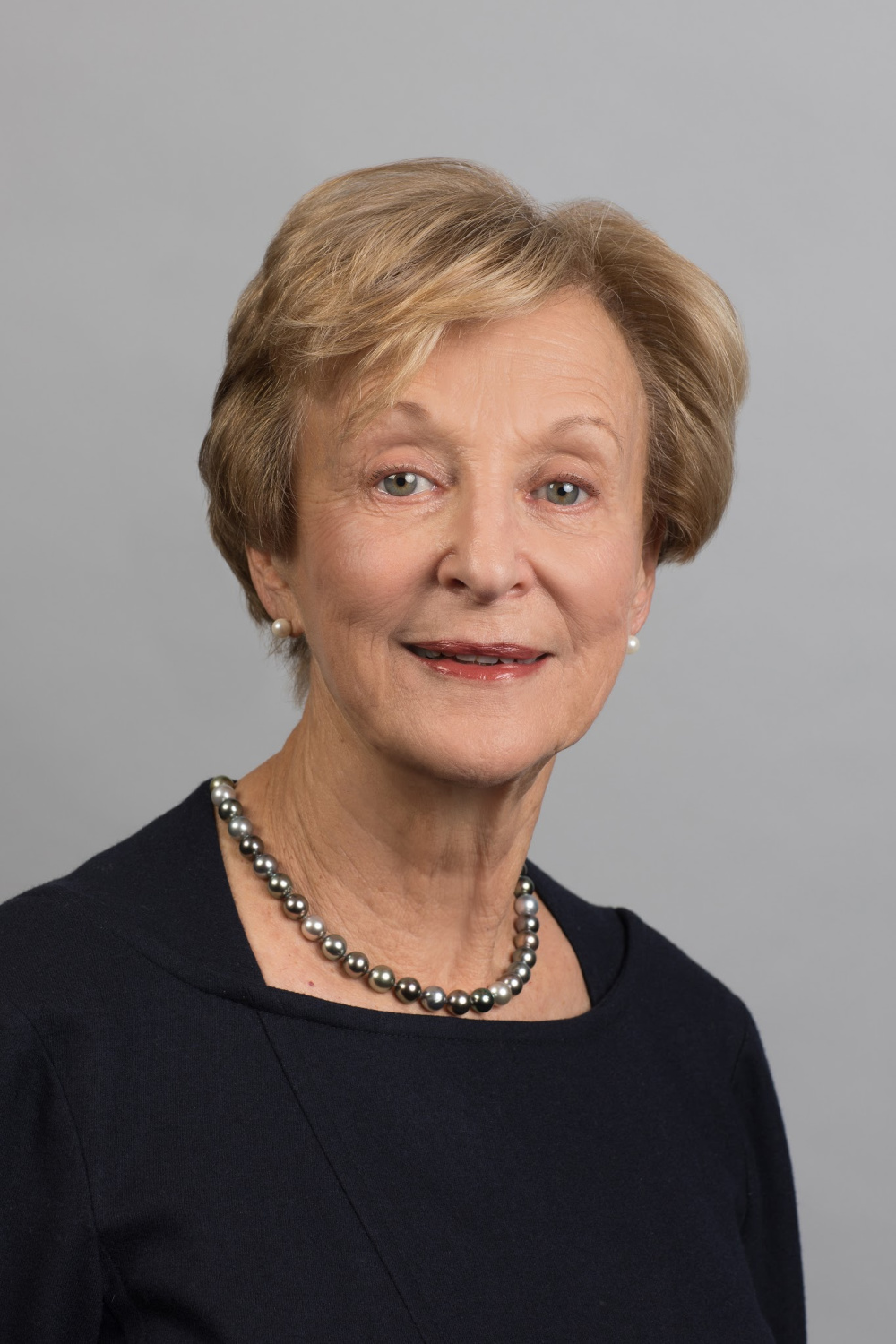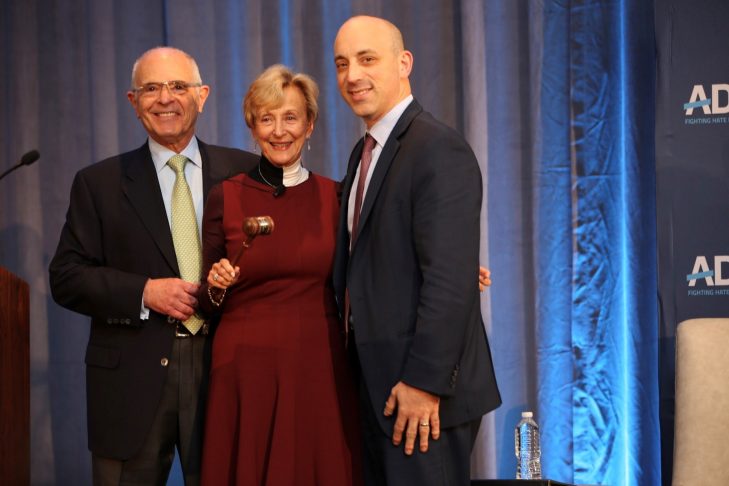Esta Epstein, the newly elected chair of the Anti-Defamation League (ADL) Board of Directors and the second woman in the organization’s 105-year history to assume the post, has a clear memory of the moment she began her lifelong involvement with ADL. “It was over 30 years ago,” she recently told JewishBoston. “I was power-walking with a friend when I lived in the suburbs, and she told me that her mailbox was blown up!” Epstein inquired whether the police were brought in, and her friend said it would be useless to involve them. She knew the kids across the street were responsible, and that their parents were anti-Semitic.
That evening, Epstein was at a parlor meeting with the ADL’s late New England regional director Lenny Zakim. She told Zakim about the incident and he, in turn, called Epstein’s friend and the authorities. “It was after that encounter with Lenny and the ADL that my husband and I became supporters,” she said.
Epstein has had a variety of volunteer leadership positions at the ADL over the past three decades. She has served on the organization’s national advisory and executive committees, as well as chaired the educational and regional operations committees. Epstein has been a familiar figure on ADL missions to Europe, Israel and South America. The Boston native also served a three-year term as chair of the New England region and received ADL’s Distinguished Community Service Award when her term ended in 2010.
In her new role, Epstein said she will initially focus on getting the new Board of Directors up and running. “We’ve changed from a Board of Directors of 300 to 17 people,” she said. “What’s also changed is that almost half of the directors are longtime ADL supporters. Others are substantial people in our country who are not necessarily Jewish. They feel our mission, and I’m interested in having them further connect with us emotionally as well as doing the business of the board.”
Epstein is also intent on continuing to grow ADL’s public persona. She acknowledged that this post-Pittsburgh world is “a place that’s hard to believe. ADL’s Center on Extremism is extremely important to the organization’s mission. I was recently reading an article that hatred is a health problem. I’m a mental health professional, so it was very interesting to me to conceptualize hatred as an infectious disease and a health epidemic.”

Epstein further observed that ADL’s Pyramid of Hate starts with “Biased Attitudes” across the bottom and ends with “Genocide” at the top. “Anti-Semitism is not as rampant as it was in Germany,” said Epstein, “but all over the world there has been a huge rise in it. ADL has done global interviews concerning anti-Semitism with carefully crafted questions. People don’t want to admit that they feel anti-Semitic, but it’s hard to ignore what is happening all over Europe, as well as what is going on in the United States.”
Epstein and her family experienced hate directly when her granddaughter Gillian Reny was severely injured at the 2013 Boston Marathon bombing. Epstein’s daughter, Audrey Epstein Reny, started the Gillian Reny Stepping Strong Fund at Brigham and Women’s Hospital. That act of generosity and activism led to the completion of a new building at the hospital in 2017, named The Gillian Reny Stepping Strong Center for Trauma Innovation. Epstein recalled how grateful she was to the hospital for saving Gillian’s life and limbs.
While turning personal tragedy into an example of optimism and determination, five years later Epstein is still deeply affected. “I was recently asked to talk to a group of 30 Canadian women visiting ADL’s Boston office,” she said. “I did the talk with the retired police commissioner William Evans, and I had to really try to keep it together. The night before the talk I kept asking myself, ‘How am I going to talk about this?’ You don’t get over it.”
Epstein also experienced solidarity with Israelis “who live with this danger all the time. The ADL office in Israel collected letters of support for Gillian when she was in rehab. Those letters reinforced that Israelis live with the real possibility of hatred and mayhem all the time. But look at what happened in our country—who would have expected Pittsburgh.”
Epstein has high praise for the ADL staff. She said ADL’s CEO and national director Jonathan Greenblatt keeps the ADL mission always in sight. Within hours after the Pittsburgh tragedy, ADL offices all over the country mobilized to organize vigils and to reach out to other Jewish organizations and synagogues. “It’s such a dedicated staff,” said Epstein. “I feel so positive in their hands.”
However, the new ADL chair has a warning—she asserted that technology has fostered hatred in unprecedented ways. “Under a cloak of anonymity, people express hatred in ways they never would in public,” Epstein said. “Anti-Semitism was under the radar for so long—it doesn’t mean it wasn’t there—but it seems to be more acceptable these days. I’m hoping the ADL will curb that hatred and educate people of all faiths to understand how terrible hate and anti-Semitism are. We just don’t want to tolerate people, but we want to get to know them. That is why I’m doing this for the ADL—to educate and inspire people to care.”



